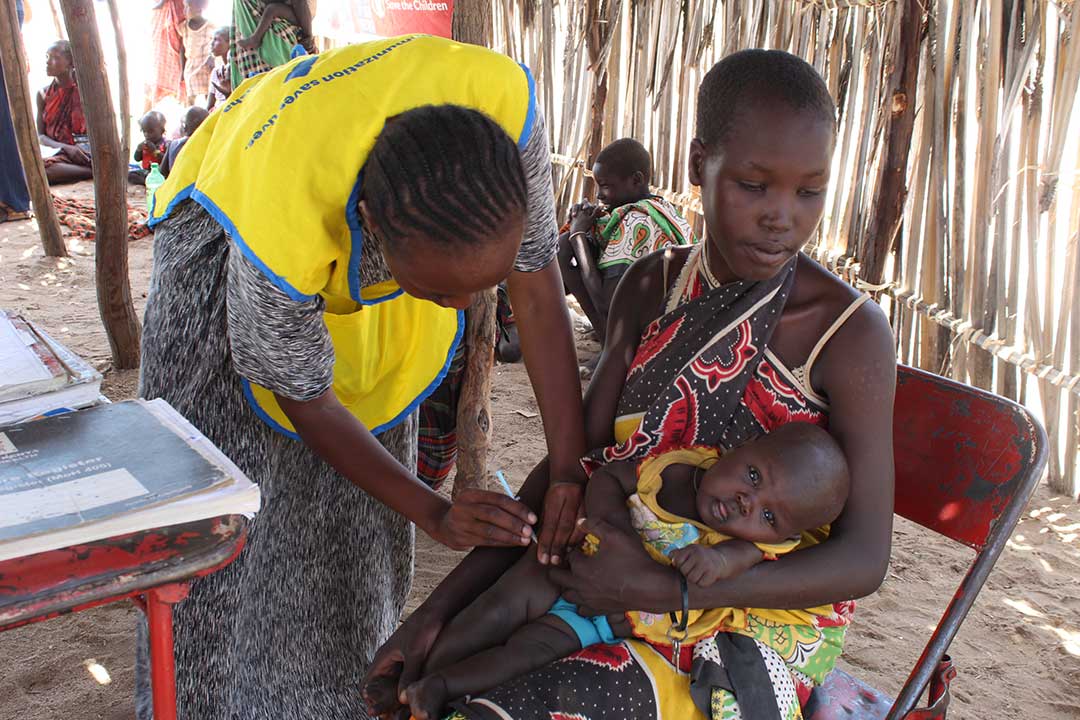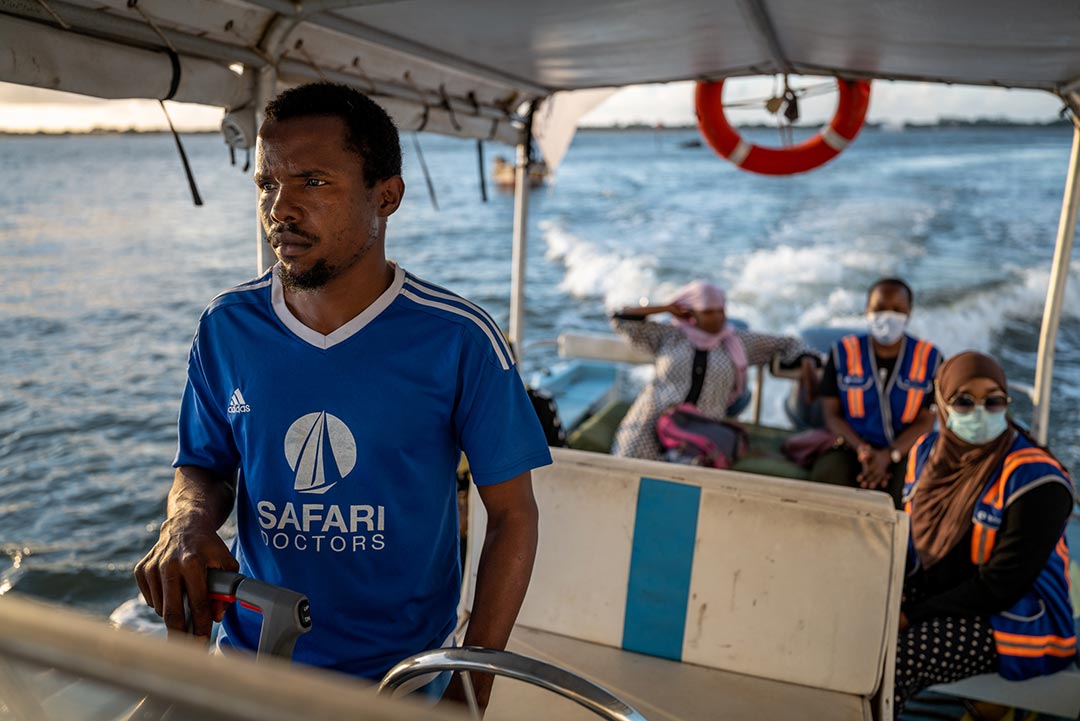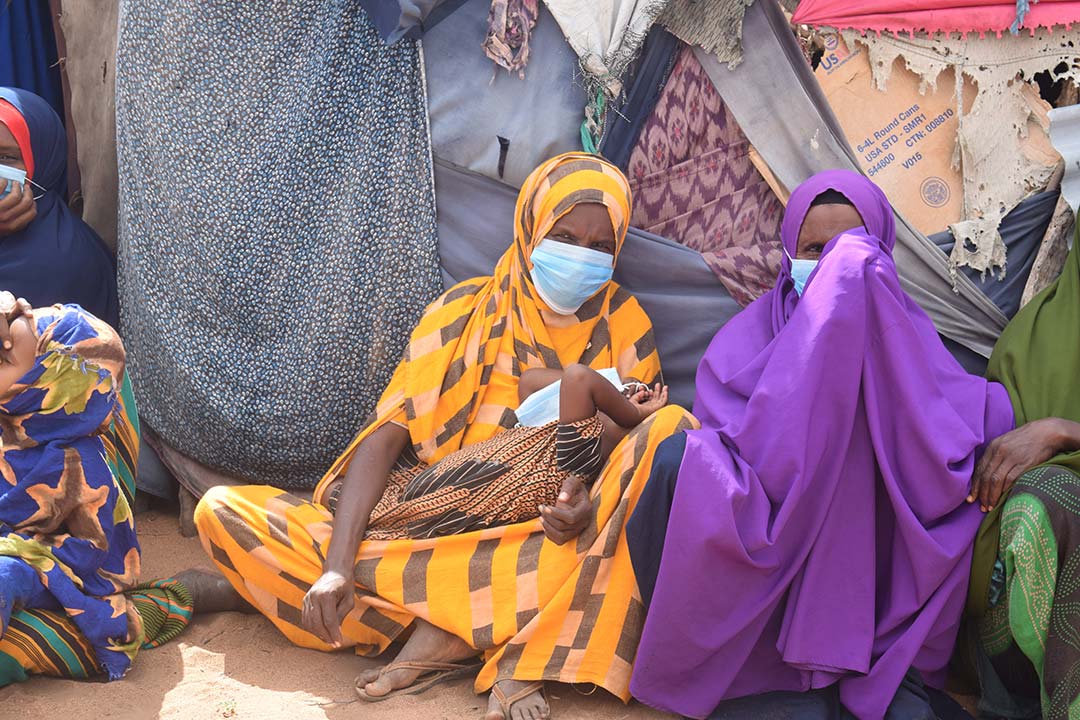Q&A: Dr Collins Tabu, Kenya’s immunisation chief, discusses the COVID-19 vaccine roll-out
Dr Collins Tabu, Head of Kenya's National Vaccines and Immunisation Program, is on a mission to vaccinate at least half of the adult population against COVID-19 by the end of the year. #VaccinesWork spoke to him to see how they plan to do it.
- 8 November 2021
- 5 min read
- by Abjata Khalif
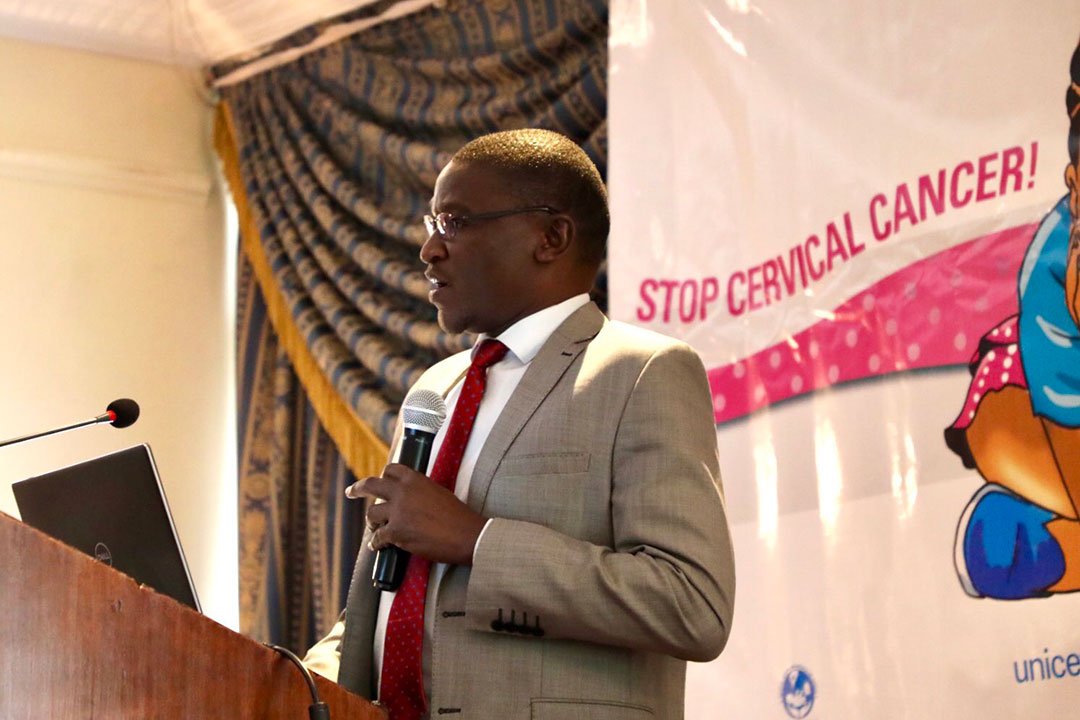
Which groups is Kenya prioritising in the COVID-19 vaccine rollout?
Kenya commenced its COVID-19 vaccination programme on 5 March 2021, with the first phase focused on vaccinating frontline workers – health staff, teachers and uniformed forces.
The focus was on maximising immunity against COVID-19 in the highest priority groups according to the recommended dose schedules and reaching as many people within as many priority groups as quickly as possible with at least one dose of the vaccine.
With the increased availability of vaccines, the country reviewed its deployment plan to target vaccination of at least 50% of the adult population – 13 million people – by the end of 2021.
“The demand for vaccination exceeded expectations. It is expected to be the game changer in ensuring a return to normalcy for the country.”
Where has the country sourced vaccines from?
So far, we have received a total of 6.35 million COVID-19 vaccine doses, of which 3.46 million (54%) were Oxford-AstraZeneca doses through the COVAX Facility which has contributed significantly towards the reduction of morbidity and mortality arising from COVID-19 infections, complementing the public health and containment measures instituted by the government.
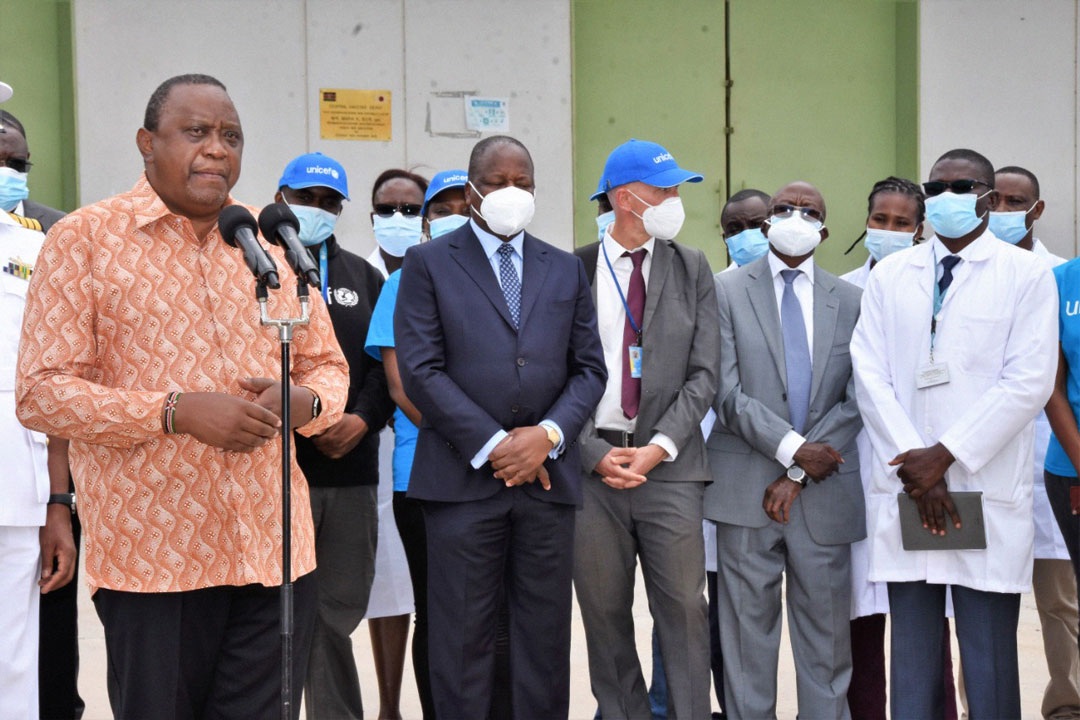
How many people have received COVID-19 vaccines so far?
As of 5 October, 4 million (63%) of the 6.35 million COVID-19 vaccine doses have been administered. Approximately 14% of the adult population have received at least one dose of COVID-19 Vaccines, with 3.02 million individuals being fully vaccinated.
The country expects to deploy another 20 million doses of different WHO-approved vaccines in the remaining part of the year, which will be instrumental in achieving our Phase I & II targets. We hope to have vaccinated at least half of the adult population by the end of 2021.
“The health and immunisation system investments being made now will be important in enabling the country to roll out other vaccines and sensitise communities on the importance of vaccines through the life course.”
What are Kenya’s vaccine storage capabilities and capacity?
The country is deploying the vaccines through the existing network of depots and vaccine stores, specifically: the National Vaccine Depot, located in Nairobi; nine regional depots located in Kakamega, Kisumu, Nakuru, Eldoret, Meru, Mombasa, Garissa, Nyeri and Nairobi; and three county depots serving the arid and marginalised regions of Mandera, Wajir and Turkana, to ensure equity.
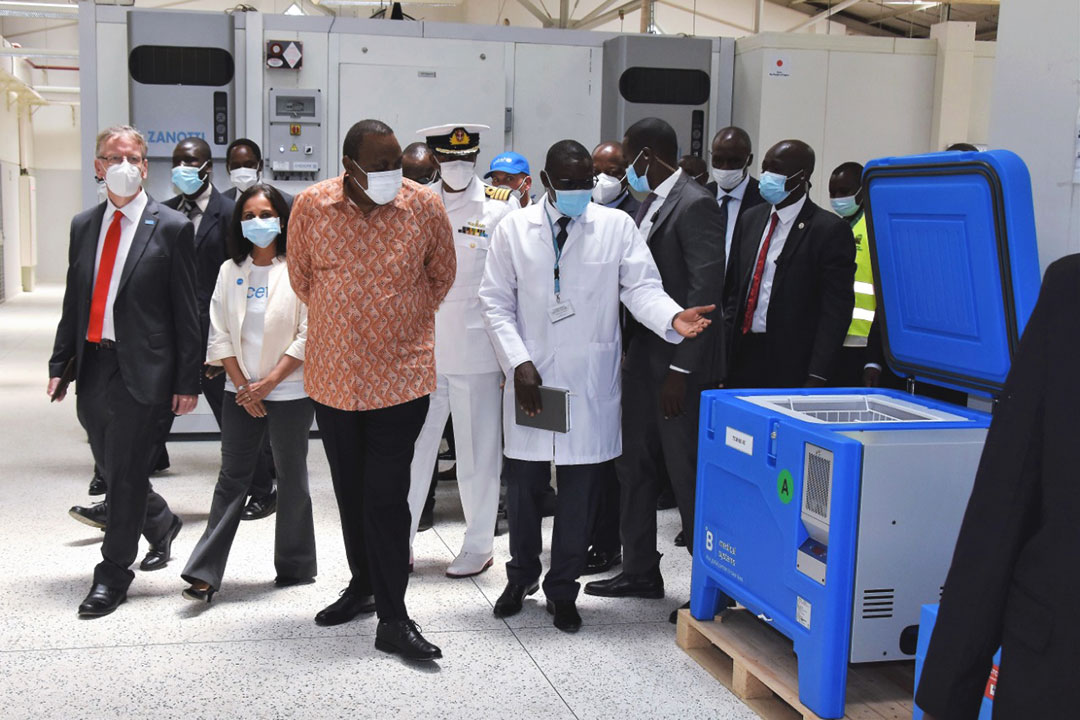
These make vaccines available to 290 sub-county vaccine stores, which, in turn, serve at least 8,000 immunising health facilities across the country.
Have you read?
Storage capacity for both positive and negative temperature storage (for Moderna and Pfizer vaccines) at national and subnational levels has been expanded with the support of Gavi, UNICEF and JICA, and is adequate for the storage of COVID-19 vaccines.
The Northern Kenya region has energy challenges and hostile weather. Do you think these challenges will affect COVID-19 vaccine rollout and administration?
No. The investments over time by the government, supported by Gavi amongst other donors, has ensured that we have context-specific cold chain equipment in place, most of which is solar driven, to support routine immunisation and COVID-19 vaccination. These regions have specific purpose-built vaccine depots to ensure uninterrupted access to vaccines.
Vaccination strategies are tailored to suit the nomadic lifestyle and culture of the communities in those regions.
How many health workers have you trained nationally and at county level to contain COVID-19? Have they faced resistance to their work or campaigns?
Approximately 5,000 health workers have been trained so far. There has been no resistance. On the contrary, the demand for vaccination exceeded expectations. It is expected to be the game changer in ensuring a return to normalcy for the country.
Did the Kenyan Ministry of Health develop crisis communication plans to address misinformation, potential adverse events, myths, misconception and hesitancy?
Yes, Kenya has developed and has been deploying a crisis communication plan to debunk the myths and misconceptions and assure the communities that the vaccines have a positive benefit-risk profile, with tremendous potential to prevent infections and reduce deaths.
A whole of government approach, enlisting the support of key stakeholders, has been key to ensure the support of the communication and mobilisation initiatives.
The vaccine delivery has been managed as a key enabler to the economic functioning and national security of the country, hence the multi-sectoral response, involving, amongst others: critical line ministries, departments and agencies including Interior and Coordination, Defence, Treasury, Education, Transport and Infrastructure, ICT and Communication, Sports, Labour and Social Protection, and County Governments.
How is the Ministry of Health dealing with misinformation, especially in hard-to-reach areas, hostile border regions and remote settings with high illiteracy levels?
The Ministry of Health is dealing with this through active engagement with the local community leadership and enlisting their support to mobilise communities for vaccination, mainly through targeted outreaches. This engagement with the local community and religious leadership, involving the sharing of life stories and tailoring of vaccination strategies to suit the community culture and lifestyles, has helped build community trust and confidence in COVID-19 vaccines and debunk myths
Will COVID-19 vaccine administration affect Kenya’s plans to roll out other vaccines?
No. COVID-19 vaccination has not significantly affected our plan to roll out other vaccines. On the contrary, the health and immunisation system investments being made now will be important in enabling the country to roll out other vaccines and sensitise communities on the importance of vaccines through the life course.
Will the new COVID-19 variants affect the administration of Oxford-AstraZeneca vaccine?
No. It doesn’t appear possible that the new COVID-19 variants will affect the administration of Oxford-AstraZeneca vaccine. The messaging to our people has been clear that ALL vaccines offer protection against developing severe disease, hospitalisation and death due to the new variants, and this has been very positively received.

